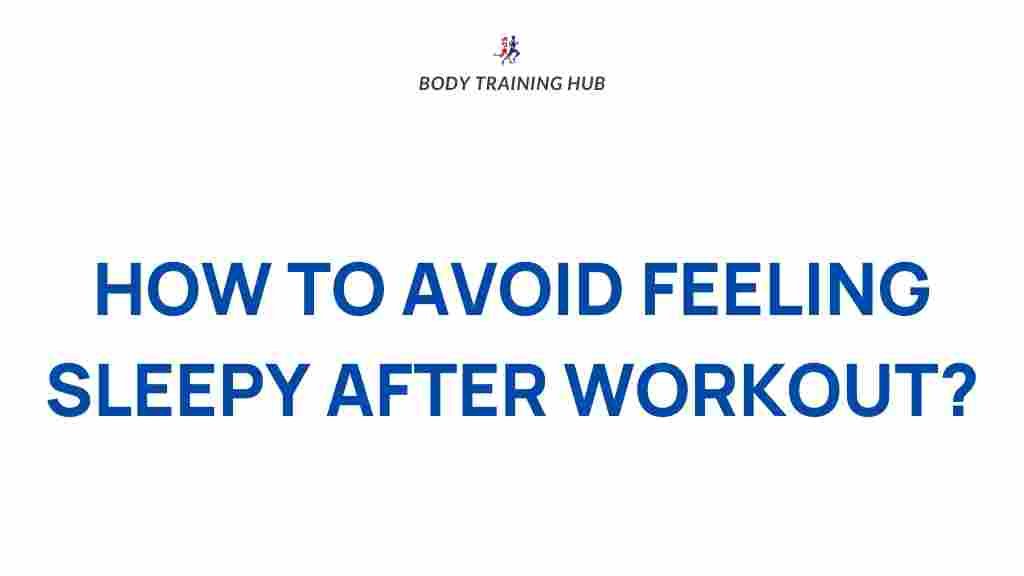Unleash Your Energy: Tips to Combat Post-Workout Fatigue
Post-workout fatigue is a common challenge faced by individuals after an intense training session. While it’s natural to feel exhausted after pushing your body to its limits, prolonged fatigue can hinder your fitness goals and recovery. If you’re looking to bounce back with renewed energy, it’s essential to understand how to optimize your recovery process. In this article, we’ll explore effective tips and strategies to help you combat post-workout fatigue and unleash your energy for future workouts.
Understanding the Causes of Post-Workout Fatigue
Before diving into recovery tips, it’s crucial to understand why post-workout fatigue happens. When you engage in physical activity, especially intense exercise, your body uses energy and experiences microscopic tears in muscle fibers. This causes muscle fatigue and a temporary dip in energy levels. The level of fatigue you feel depends on several factors, including the intensity of your workout, your fitness level, and how well you prepared your body before and after exercise.
Common causes of post-workout fatigue include:
- Dehydration: Losing fluids during exercise can contribute to tiredness and sluggishness.
- Inadequate Nutrition: Insufficient intake of macronutrients (carbohydrates, proteins, fats) can leave your body without the necessary fuel for recovery.
- Overtraining: Excessive or high-intensity training without proper rest can lead to chronic fatigue.
- Sleep Deprivation: Lack of quality sleep negatively impacts your energy levels and recovery process.
Step-by-Step Guide to Combat Post-Workout Fatigue
To maximize your energy and improve recovery after your workout, follow these steps to combat fatigue effectively:
1. Hydrate Well
Replenishing the fluids lost during exercise is one of the most important things you can do to boost your energy. Dehydration can cause tiredness, muscle cramps, and even dizziness. To rehydrate properly:
- Drink water immediately after your workout to replace lost fluids.
- If you’ve had an intense session, consider drinking an electrolyte-rich beverage to restore sodium and potassium levels.
- Keep sipping water throughout the day to maintain optimal hydration.
2. Refuel with the Right Nutrition
After your workout, your muscles need nutrients to repair and grow. Consuming a balanced meal or snack with carbohydrates, protein, and healthy fats is essential for replenishing energy stores and facilitating muscle recovery. Here’s how to refuel effectively:
- Carbohydrates: Replenish glycogen stores by consuming complex carbs like whole grains, fruits, or vegetables.
- Protein: Protein is vital for muscle repair. Opt for lean proteins like chicken, tofu, or legumes.
- Healthy Fats: Healthy fats, such as avocado, nuts, or olive oil, help with overall recovery and provide sustained energy.
For more detailed nutrition tips, check out this comprehensive guide on post-workout meals.
3. Prioritize Sleep
Sleep plays a critical role in energy recovery. During sleep, your body repairs muscle tissue, replenishes energy stores, and releases growth hormones. Poor or insufficient sleep can lead to increased fatigue and prolonged recovery times. To ensure better sleep quality:
- Aim for 7-9 hours of sleep per night to allow your body to fully recover.
- Establish a consistent sleep schedule and avoid late-night workouts.
- Consider using relaxation techniques, like deep breathing or meditation, to wind down before bed.
4. Use Active Recovery
While rest is essential, engaging in light physical activity on your recovery days can help increase blood flow and reduce muscle soreness. This process, known as active recovery, helps to speed up the elimination of metabolic waste products and encourages nutrient delivery to muscles. Active recovery activities include:
- Gentle yoga or stretching routines.
- Light walking or cycling.
- Swimming at a relaxed pace.
5. Avoid Overtraining
One of the most effective ways to fight post-workout fatigue is by avoiding overtraining. Overtraining occurs when you don’t allow sufficient recovery time between intense workouts, leading to persistent fatigue and potential injury. To avoid overtraining:
- Take rest days to let your muscles recover.
- Alternate between intense and lighter workout days.
- Listen to your body and adjust your training intensity when needed.
Additional Tips to Boost Your Energy After Exercise
Aside from the core recovery strategies mentioned above, here are a few more tips to help you maintain high energy levels after your workouts:
- Stretching: Stretching your muscles after a workout helps release tension and improves circulation, preventing tightness and fatigue.
- Massage Therapy: Getting a post-workout massage can help reduce soreness and improve blood flow, accelerating the recovery process.
- Supplements: Consider using natural supplements like branched-chain amino acids (BCAAs) or magnesium to aid muscle recovery and energy production.
By incorporating these additional steps into your routine, you can speed up recovery and return to your next workout feeling refreshed and energized.
Troubleshooting Common Post-Workout Fatigue Issues
If you’re still feeling fatigued after following these recovery tips, you might be facing other underlying issues. Here are a few troubleshooting tips to consider:
- Low Iron Levels: Fatigue could be a sign of iron deficiency. If you’re feeling persistently tired, consider having your iron levels tested and incorporating iron-rich foods into your diet.
- Inadequate Nutrition: Are you consuming enough calories? If you’re not fueling your body properly, you may experience extreme fatigue. Consider consulting with a nutritionist to optimize your diet.
- Stress and Mental Fatigue: Mental fatigue can be just as draining as physical fatigue. Practice stress management techniques such as mindfulness or journaling to improve overall well-being.
Conclusion: Reclaim Your Energy and Keep Moving Forward
Post-workout fatigue is a natural part of the fitness journey, but it doesn’t have to hold you back. By focusing on proper hydration, nutrition, sleep, active recovery, and avoiding overtraining, you can significantly reduce fatigue and regain your energy faster. Remember, recovery is just as important as the workout itself. Listen to your body, take care of your muscles, and prioritize rest to ensure you’re always ready to give your best in every workout.
For more helpful tips on energy-boosting and workout recovery, visit our fitness resources page.
This article is in the category Strength & Recovery and created by BodyTraining Team
